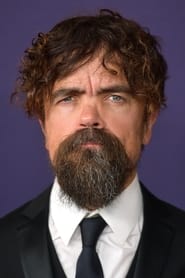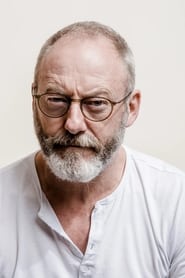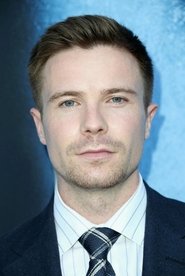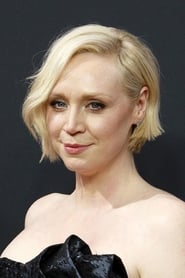
Ask Your Own Question
What is the plot?
In the episode "Creating the Dothraki language," the focus is on the development of the Dothraki language for the television series "Game of Thrones." The episode begins with an introduction to the linguist David J. Peterson, who was tasked with creating a fully functional language for the Dothraki people, a nomadic warrior culture in the series. Peterson discusses the importance of language in establishing the identity and culture of the Dothraki, emphasizing that it must reflect their lifestyle and values.
Peterson explains the process he undertook to develop the language, starting with the phonetics and sounds that would be appropriate for the Dothraki. He describes how he drew inspiration from various real-world languages, incorporating elements that would resonate with the audience while remaining unique. The episode showcases clips of the Dothraki characters speaking, illustrating how the language is used in the context of the show.
As the episode progresses, Peterson delves into the grammatical structure of the Dothraki language, explaining how he constructed its syntax and vocabulary. He highlights specific words and phrases, providing examples of how they are used in dialogue. The episode features interviews with cast members, including Jason Momoa, who played Khal Drogo, discussing their experiences learning the language and how it added depth to their characters.
The narrative shifts to the challenges Peterson faced in creating a language that was both authentic and practical for the actors to learn. He shares anecdotes about working with the cast, including their initial struggles with pronunciation and the importance of conveying emotion through the language. The episode includes behind-the-scenes footage of rehearsals, showcasing the actors practicing their lines in Dothraki.
Towards the end of the episode, Peterson reflects on the impact of the Dothraki language on the overall storytelling of "Game of Thrones." He emphasizes that language is a crucial element in world-building, allowing viewers to immerse themselves in the culture of the Dothraki. The episode concludes with a montage of scenes featuring the Dothraki, highlighting the language's role in defining their identity and enhancing the narrative of the series.
What is the ending?
In the episode "Creating the Dothraki language," the focus is on the development of the Dothraki language for the series "Game of Thrones." The episode concludes with a celebration of the linguistic creation process, showcasing the dedication of the language creator, David J. Peterson, and the impact of the Dothraki culture on the series.
As the episode unfolds, it begins with an introduction to the Dothraki people, a nomadic warrior culture known for their strong connection to horses and the vast landscapes they inhabit. The scene transitions to David J. Peterson, who is tasked with creating a fully functional language that reflects the Dothraki's unique worldview and lifestyle. He discusses the importance of language in shaping culture and identity, emphasizing that the Dothraki language must be rich and expressive to convey the depth of their character.
Peterson is shown working diligently, crafting vocabulary and grammar rules that resonate with the essence of the Dothraki. He explains the linguistic choices he makes, such as the sounds and structures that evoke the imagery of the Dothraki's environment. The episode features clips of the actors using the language on set, illustrating how the Dothraki language enhances the authenticity of their performances and the overall storytelling.
As the episode progresses, Peterson shares his excitement and challenges in developing the language, including the need to balance creativity with practicality. He collaborates with the show's producers and actors, ensuring that the language feels natural and is integrated seamlessly into the narrative. The episode highlights the collaborative effort behind the scenes, showcasing the passion and commitment of everyone involved in bringing the Dothraki culture to life.
In the final scenes, the episode culminates in a celebration of the Dothraki language's successful integration into "Game of Thrones." Peterson reflects on the journey of creating the language, expressing pride in the work accomplished and the impact it has had on the series. The episode ends on a high note, emphasizing the importance of language in storytelling and the rich tapestry of cultures that "Game of Thrones" explores.
Overall, the episode serves as a tribute to the art of language creation and its vital role in enhancing the narrative depth of the series, leaving viewers with a greater appreciation for the Dothraki and the intricate world of Westeros.
Is there a post-credit scene?
In the episode "Creating the Dothraki language" from the "Specials" of Game of Thrones, there is no post-credit scene. The episode focuses on the development of the Dothraki language, showcasing the work of linguist David J. Peterson as he explains the intricacies of the language he created for the series. The content is primarily educational, detailing the linguistic structure, vocabulary, and cultural significance of the Dothraki language within the context of the show. The episode concludes without any additional scenes or content after the credits.
How was the Dothraki language developed for the show?
The Dothraki language was meticulously crafted by linguist David J. Peterson, who was brought on board to create a fully functional language that would reflect the culture and lifestyle of the Dothraki people. Peterson focused on the sounds, grammar, and vocabulary that would be appropriate for a nomadic warrior culture, ensuring that the language felt authentic and immersive.
What specific cultural elements influenced the Dothraki language?
The Dothraki language was influenced by various cultural elements, including the nomadic lifestyle of the Dothraki, their connection to horses, and their warrior ethos. Peterson incorporated terms related to horse riding, warfare, and the natural world, which are central to Dothraki identity, making the language resonate with their way of life.
What challenges did the creators face in making the Dothraki language believable?
One of the main challenges was ensuring that the Dothraki language sounded distinct and realistic while also being easy for the actors to learn and pronounce. Peterson had to balance the complexity of a real language with the practicalities of filming, creating a language that was both rich in detail and accessible for the cast.
How did the actors prepare to speak Dothraki in their roles?
The actors underwent language coaching sessions with David J. Peterson to learn the pronunciation and nuances of the Dothraki language. This preparation included practicing specific phrases and understanding the cultural context behind the language, which helped them deliver their lines with authenticity and emotional depth.
What role does the Dothraki language play in character development?
The Dothraki language serves as a crucial tool for character development, particularly for Daenerys Targaryen, as it symbolizes her connection to the Dothraki culture and her growth as a leader. Speaking the language allows her to bridge the gap between her heritage and the Dothraki people, showcasing her evolution from an outsider to a respected figure within their society.
Is this family friendly?
"Creating the Dothraki language" is a behind-the-scenes special that focuses on the development of the Dothraki language for the series "Game of Thrones." While it primarily showcases the linguistic and cultural aspects of the Dothraki people, there are a few elements that may be considered objectionable or upsetting for children or sensitive viewers:
-
Mature Themes: The Dothraki culture is depicted as warrior-centric, which may include discussions of violence and conflict inherent in their way of life.
-
Language and Profanity: The special may include the use of strong language or profanity as part of the Dothraki vocabulary, which might not be suitable for younger audiences.
-
Cultural Context: There may be references to themes of conquest, dominance, and the harsh realities of life in a warrior society, which could be unsettling for some viewers.
-
Visual Imagery: While the special is not graphic, it may include imagery or discussions related to the more violent aspects of the Dothraki lifestyle, which could be distressing.
Overall, while the special is educational and focuses on language creation, the context and themes may not be entirely family-friendly for all viewers.
























